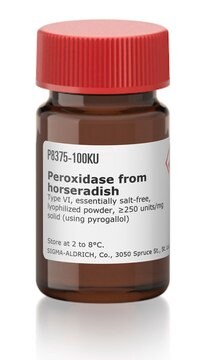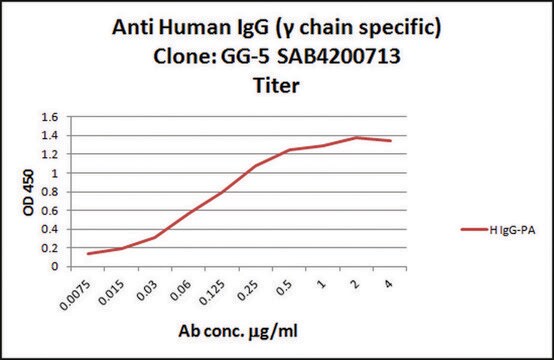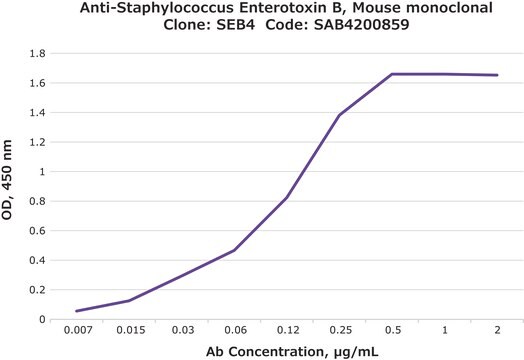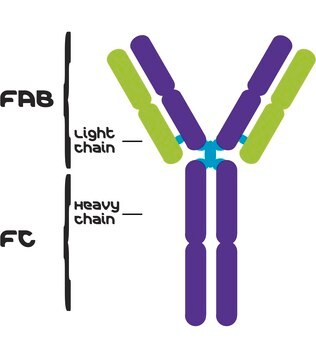SAB4200853
Anti-PBP2a of MRSA antibody, Mouse monoclonal
clone 38, purified from hybridoma cell culture
Synonym(e):
Anti-Beta-lactam-inducible penicillin-binding protein 2a
About This Item
Empfohlene Produkte
Antikörperform
purified from hybridoma cell culture
Qualitätsniveau
Antikörper-Produkttyp
primary antibodies
Klon
38, monoclonal
Form
liquid
Konzentration
~1 mg/mL
Methode(n)
immunoblotting: 0.5-1 μg/mL using whole recombinant PBP2a protein
Isotyp
IgG1
Versandbedingung
dry ice
Lagertemp.
−20°C
Posttranslationale Modifikation Target
unmodified
Allgemeine Beschreibung
Spezifität
Anwendung
Biochem./physiol. Wirkung
Physikalische Form
Lagerung und Haltbarkeit
Haftungsausschluss
Sie haben nicht das passende Produkt gefunden?
Probieren Sie unser Produkt-Auswahlhilfe. aus.
Lagerklassenschlüssel
12 - Non Combustible Liquids
WGK
WGK 1
Flammpunkt (°F)
Not applicable
Flammpunkt (°C)
Not applicable
Analysenzertifikate (COA)
Suchen Sie nach Analysenzertifikate (COA), indem Sie die Lot-/Chargennummer des Produkts eingeben. Lot- und Chargennummern sind auf dem Produktetikett hinter den Wörtern ‘Lot’ oder ‘Batch’ (Lot oder Charge) zu finden.
Besitzen Sie dieses Produkt bereits?
In der Dokumentenbibliothek finden Sie die Dokumentation zu den Produkten, die Sie kürzlich erworben haben.
Unser Team von Wissenschaftlern verfügt über Erfahrung in allen Forschungsbereichen einschließlich Life Science, Materialwissenschaften, chemischer Synthese, Chromatographie, Analytik und vielen mehr..
Setzen Sie sich mit dem technischen Dienst in Verbindung.








